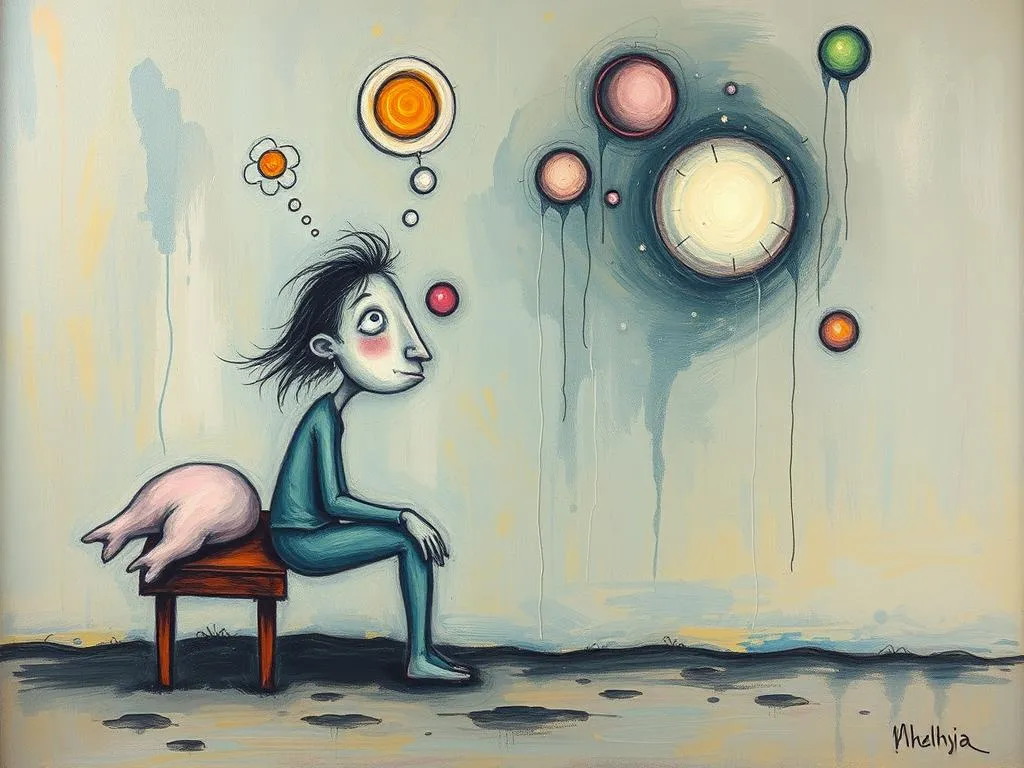
Dreams serve as a fascinating window into our subconscious, often revealing our innermost thoughts, fears, and desires. One particularly troubling dream scenario is that of suicide. While dreams about suicide can evoke strong feelings of fear, confusion, and concern, they are not always indicative of a desire to end one’s life. Understanding these dreams can provide valuable insights into our emotional state and life circumstances, making it a topic that intrigues many. In this article, we will explore the symbolism and meanings of suicide dreams, variations of these dreams, and how they connect to our waking lives.
Symbolism and Meaning
Dreams about suicide can carry a range of meanings, often reflecting the dreamer’s psychological and emotional state. At the core, suicide in dreams may symbolize a desire for change or the need to escape from overwhelming situations. It can represent feelings of hopelessness, powerlessness, or a sense of being trapped. When we dream about suicide, it often indicates that we are grappling with intense emotions, such as depression or anxiety, that we may not fully acknowledge in our waking lives.
Another common interpretation is that these dreams may signify the end of a particular phase or aspect of life. Just as in waking life, where endings can lead to new beginnings, dreaming of suicide might indicate that the dreamer is ready to let go of old habits, relationships, or beliefs that no longer serve them. This perspective highlights the potential for transformation and rebirth.
Furthermore, the context of the dream plays a crucial role in its interpretation. For instance, if the dreamer feels relief or freedom after the act of suicide in the dream, it may suggest a longing for liberation from burdensome responsibilities or toxic relationships. Conversely, if the dream is filled with despair, it might point to unresolved emotional pain or a sense of loss.
Cultural and personal factors also shape the interpretation of suicide dreams. For some, suicide may carry heavy cultural or religious connotations, influencing how they perceive its symbolism. For others, their personal experiences with mental health might color their interpretation. It’s essential to consider these variables to gain a holistic understanding of the dream’s meaning.
Key Scenarios and Variations
The way suicide manifests in dreams can vary significantly, leading to different interpretations based on the scenario. For example, dreaming about attempting suicide could reflect feelings of desperation, suggesting that the dreamer is struggling with overwhelming emotions or circumstances. This may serve as a signal to seek help or make changes in their life.
Alternatively, if the dream involves witnessing someone else’s suicide, it could symbolize feelings of helplessness regarding that person or a situation in real life. This might indicate that the dreamer feels unable to assist someone they care about, or it could represent a projection of their own feelings of despair.
Another variation is dreaming about surviving a suicide attempt. This scenario may symbolize resilience and the ability to overcome adversity. It can represent hope and the urge to fight through difficult times, indicating that the dreamer has the inner strength to face their challenges.
Moreover, the setting of the dream can also influence its meaning. For instance, dreaming of committing suicide in a familiar place may suggest that the dreamer feels trapped in their current circumstances, while doing so in an unfamiliar location might symbolize a desire for change or escape from their current life.
Emotional responses during the dream also matter. If the dreamer feels peace or acceptance, it may suggest a readiness to let go of past pain. If, however, the dream is filled with chaos and distress, it indicates unresolved feelings that need addressing.
Real-Life Connections and Takeaways
Connecting dreams about suicide to real life can be a complex but enlightening process. In many cases, these dreams can serve as a prompt for self-reflection and introspection. Acknowledging the emotions and situations that arise in these dreams can lead to greater self-awareness.
If a reader finds themselves often dreaming about suicide, it may be beneficial to explore their emotional well-being. Are there unresolved issues in their life? Do they feel overwhelmed by stressors that they can’t control? Engaging in practices such as journaling, meditation, or therapy can help in processing these feelings. It’s crucial to recognize that dreaming about suicide does not mean one is going to act on it; rather, it often signifies a need for change or healing.
Additionally, these dreams may highlight the importance of nurturing one’s mental health. Setting aside time for self-care, seeking professional help, and surrounding oneself with supportive individuals can contribute to emotional resilience. It’s essential for readers to remember that reaching out for help is a sign of strength, not weakness.
Lastly, reflecting on the dream can foster personal growth. Readers might ask themselves questions like: What aspects of my life feel overwhelming? What changes do I wish to make? How can I seek support from others? By confronting these questions, individuals can gain deeper insights into their emotional landscape and navigate their lives with greater clarity and purpose.
In conclusion, dreams about suicide can be profoundly unsettling but also serve as essential messages from our subconscious. By understanding the symbolism and variations of these dreams, as well as connecting them to real-life situations, individuals can embark on a journey of self-discovery and healing. As you reflect on your own dreams, remember that they are not merely random occurrences but valuable insights into your emotional state and life circumstances.







